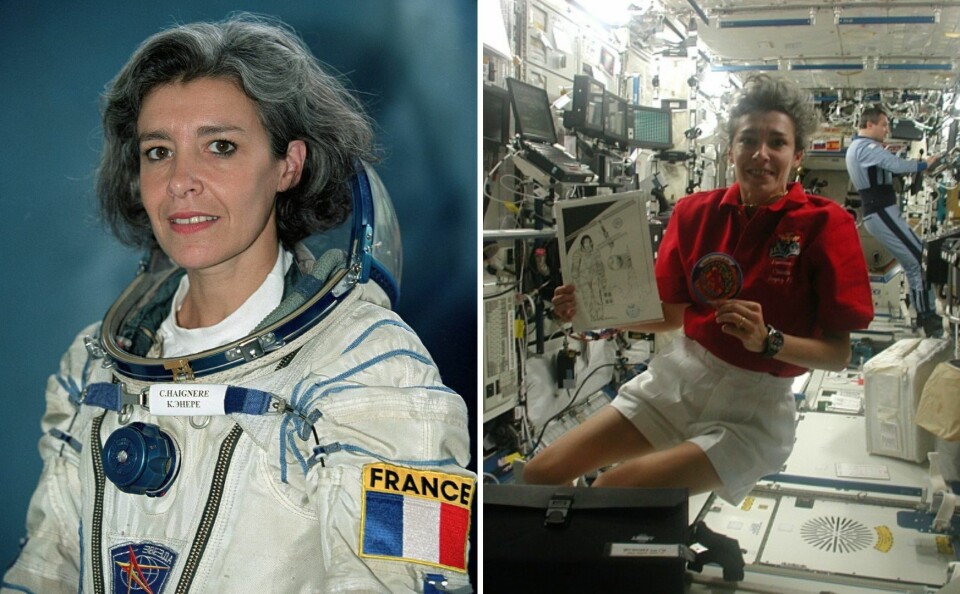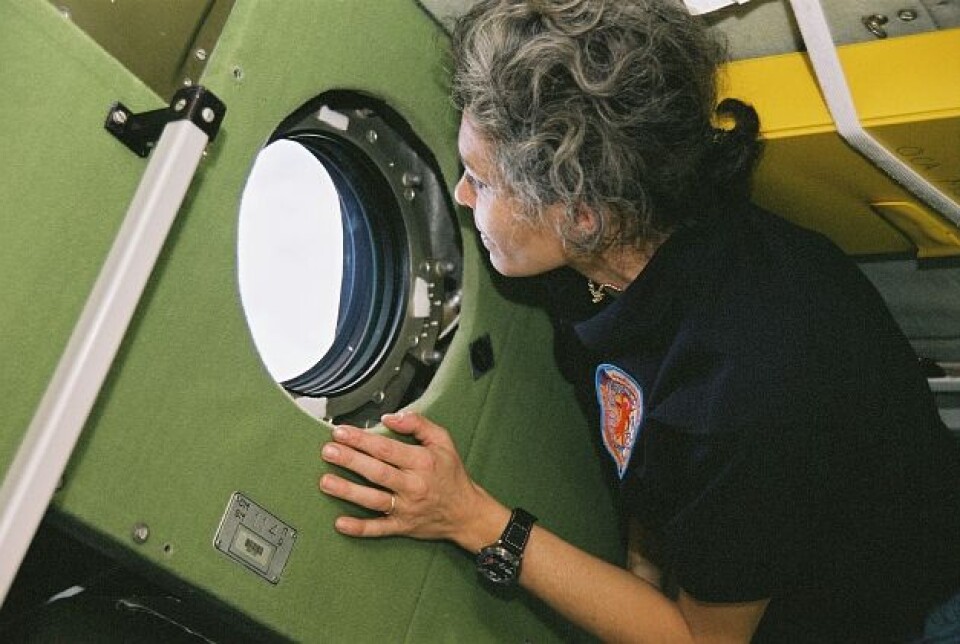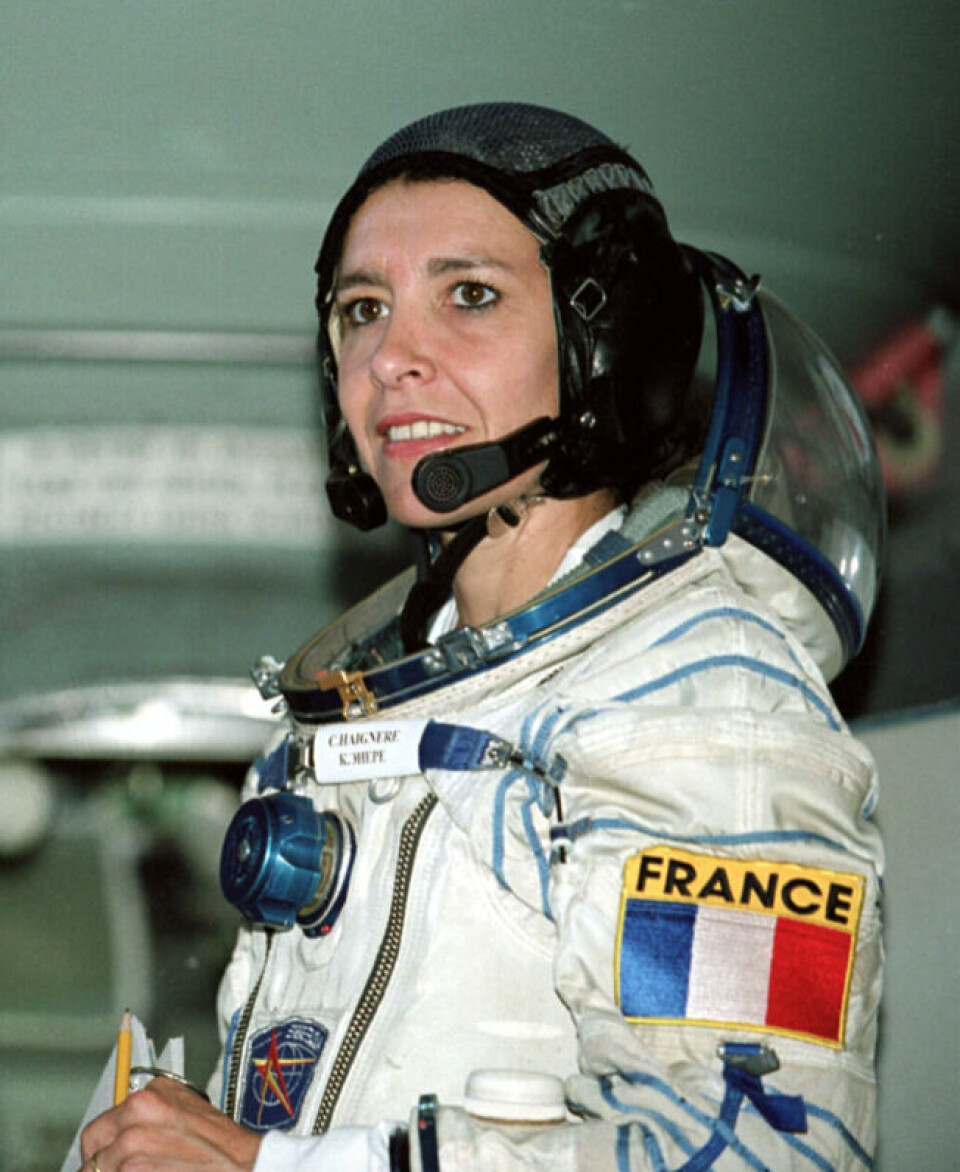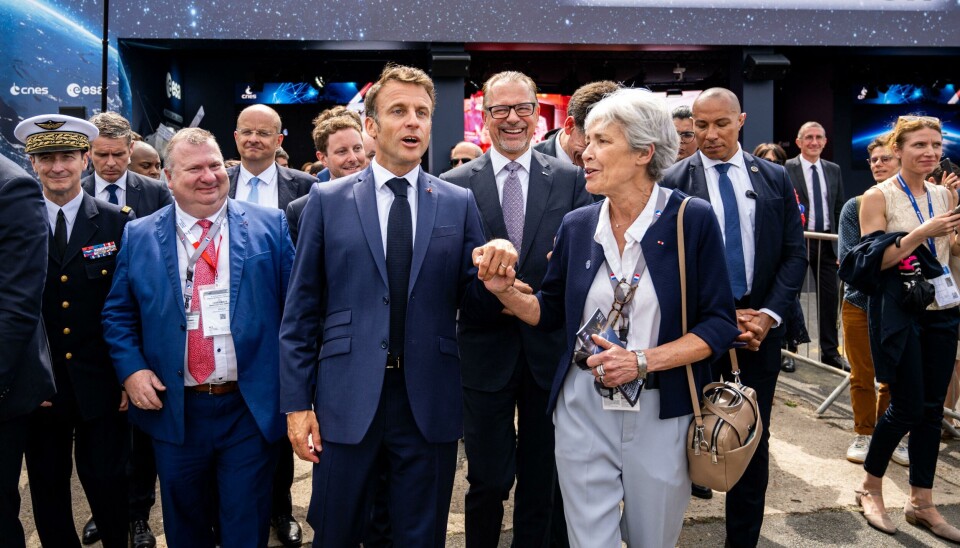-
Chance to see shooting stars tonight from France
NASA says stargazers can expect up to 15 meteors per hour
-
From English teacher to TikTok star in France: 'The way to help students learn is to believe in them'
Toulouse-based Monsieur Prof's educational videos on learning English are a social media sensation
-
‘The first baby hedgehog we rescued was love-at-first-sight’
We speak to an expert about her hedgehog health centre and how to make your garden more hedgehog-friendly
'I tell women to be bold - and I disagree with Elon Musk about saving our planet'
The first French woman to go into space shares her thoughts on Mars exploration

In 2026, France will send a second female astronaut, Sophie Adenot, into space. For now, however, Claudie Haigneré is the only person to have accomplished this.
In 1996, Ms Haigneré was the first French woman to go into space – for 16 days aboard the Russian space station Mir.
She was only the second western European woman in space, after Briton Helen Sharman, and the first woman to board the International Space Station, for nine days in 2001.
Having passed her Bac at just 15 she became a hospital doctor and medical researcher, eventually specialising in space medicine before becoming an astronaut.
Her achievements in the job have since been recognised with ministerial appointments in 2002 and 2004, executive roles in big companies, medals and awards. Several French streets and schools bear her name.
Read more: 19 inspirational French women for International Women’s Day
How do you feel about no longer being the only French woman to have gone into space?
I am an astronaut of the 20th century! Luckily, a new generation of French and European astronauts has taken up the baton. A strong scientific background is important for our young women.
I have coached Sophie Adenot through several steps of her preparation process and I will keep this relationship going.
She is a multi-skilled woman with a rich personality who takes great interest in sharing her experiences.
Has it been hard to carry the burden of being the only French woman to have gone into space?
I take pride in it, and it is more an honour than a burden to bear.

I do not consider myself a role model but rather an example; someone who has accomplished her dreams and had the audacity to try a challenging, ambitious, and out-of-the-ordinary career. That, I carry with pleasure.
However, I fully accept the role on behalf of young women, but I also want to talk about how science, engineering, and technology can enlighten future generations.
Your opinion is always sought every time a new film about space is released. Are these films accurate?
I want to highlight Proxima and L’Astronaute, the two latest French films to have explored space, because they differ from the usual American representations which tend to offer dystopian images or catastrophic situations that some superhuman will save us from.
These two films have a human aspect that is down to earth. These are films about passion, commitment and dreams.
I think it is easier to relate to these qualities more than to the superhero-like characters seen in films like Gravity or Interstellar.
How have your views on space changed since you went there?
There has been considerable technological development to which I did not have access.
Technology has helped to advance research into climate science and the science of the universe, as well as to improve things essential to our daily lives.
In 2000 we had no internet, I could not send an SMS, and my camera was loaded with film.
We could only communicate with ground control for 10 minutes at a time, whereas now the communication coverage is at 100%.
I could not analyse my experiments in orbit but had to wait until I came back to Earth. This has considerably changed the way we work and analyse data on board.
I find it amazing that people on the ground can have almost the same experience as astronauts in orbit.
This was particularly the case with astronaut Thomas Pesquet’s recent missions.
Read more: French astronaut splashes down to earth with heartfelt tricolour Tweet
There are also more private companies working in space exploration and research, and they are sometimes more agile and faster than public organisations. It creates more competition but also greater ambition.
We now go faster and further, while lowering the cost of going into orbit. It enlarges possibilities for accessing space and helps new ‘space powers’ to arise.
People now ask questions that were not asked before, such as what are the environmental consequences of deforestation, or cyclones, as seen from space.
As astronauts we act as ambassadors of research and exploration in space, but also of Earth, which has fascinated scientists from the time they first saw its fragility from space.

Read more: French astronaut Thomas Pesquet shares photos of Brittany from space
There is a renewed interest in moon exploration. What are the goals around its conquest?
We no longer use the term ‘conquest’.
Countries are balancing competition and collaboration, showing ‘hard power’ in their technological capacities on the one hand, and ‘soft power’ on the other hand regarding their ability to forge alliances.
The moon is on every space power’s agenda, attracting public and private actors.
The scientific goal is a lesser aspect.
Moon impact craters are archives of our solar system. Dating them will have great scientific significance for understanding its formation and evolution.
The dark side of the moon is another goal. Scientists hope to install long-distance telescopes to unravel new mysteries of the solar system.
Finally, there is a whole new space economy. Research aims to extend that economy to both around and on the moon.
It is at the moon’s south pole that we envisage creating permanent bases, using the sun’s energy and establishing a reservoir from trapped meltwater.
By using these resources in situ, we could install life support and fuel supplies.
Taking advantage of the lower gravity there, we would be able to refuel on the moon itself, a complete paradigm shift for in-orbit operations and distant destinations such as Mars. It is potentially an economic option to be explored.
By 2030, France will have put in place the first elements of an infrastructure to host crews for longer stays, enabling them to learn to live and work on the surface of celestial bodies. It will be a platform for learning about destinations further afield.
France and the EU are now long-standing, reliable partners of the US.
The question then arises about the level of autonomy and interdependence necessary for the expression of European values and talents in this collective adventure for humanity.
Read more: European Space Agency launches search for next Thomas Pesquet
‘To go to the moon is to prepare for Mars’ you said once. I assume that is what you are thinking about?
The Destination Mars programme is driven almost entirely by scientific goals.
The idea is to understand a planet that has lost almost all its atmosphere, its liquid water and one that has become a desert.
Data from Mars could help us make comparisons with Earth.
The second interest lies around the possibility of traces of prebiotic life or potential elements of life, considering Mars initially had conditions very similar to the Earth.
It could shake up the relationship humanity has had with its environment.
Were you aware of the scope of space exploration at the start of your career?
It was a dream for me when I was a child. Neil Armstrong and Buzz Aldrin had set foot on the moon in July 1969.
I was raised watching 2001: A Space Odyssey by Stanley Kubrick. When I went up in 2001, I understood we were way behind what was depicted in the film.
In 1985, France and Europe had great ambitions for space exploration with the Hermès Project [for a European ‘spaceplane’].
That was 40 years ago and I was convinced it was bound to happen.
Only now are we entering the mature phase of this project. France and Europe should ask themselves about their contribution to that effort before every possible scenario is pre-empted by others.
Read More: French digital telescopes give stargazers Nasa-quality view of space
Why keep investing in moon and Mars exploration when we have such urgent problems on Earth?
Because to do so will offer potentially game-changing solutions for Earth.
What is being done on the moon serves terrestrial goals. Both planets share similar issues. Humanity will develop new solutions only through imagination, exploration and innovation.
Contrary to what Elon Musk says, I do not consider it too late to save our planet. I do not consider that we should just resign ourselves to having to develop the capacity to become a multi-planetary species.
Our goal is to become more careful and responsible in safeguarding our planet, not to resign ourselves to foregone conclusions. We cannot afford to behave in such a manner. That the subject should be discussed, I understand. But it does not mean it is hopeless.
To renounce space exploration is to renounce Earth.
What do you think of French people’s attitudes towards science? International educational studies show we do not have a lot of high achievers.
There is a worrying lack of scientific culture in France. We need to arouse young people’s curiosity and amazement with scientific demonstrations at places like the Palais de la découverte in Paris, and make sure they have the key know-how to understand the changing world.
Science and technology should not be something to be feared.
In school, students with difficulties should be helped, but it is also important that those with the highest potential should not be slowed down.
The media could help too, with more science programmes, for example.

French children have a clear idea of the roles of the police officer, firefighter, doctor… but not the engineer.
You have said girls do not trust their capacities enough to consider careers in space engineering. Why is this?
I have often asked myself that question over the last 20 years. I think that everybody is still being weighed down by gender stereotypes.
There should be more examples of people who ‘made it’.
No door is closed today, but ‘something’ needs to open it.
That something can be a dream, a desire, or meeting someone who helps to push that door open if a lack of self-confidence is holding them back.
I went into space engineering because I wanted to enjoy the path I chose.
Sophie Adenot says: “I swim in my own lane.”
She is right.
There is no need to look at what others do. But that attitude requires self-confidence and determination.
I always tell women to be bold because no field is out of bounds to them. Be bold and carry on. Take pleasure in the little steps forward.
You will not necessarily succeed but you will learn immensely from your mistakes and gain self-confidence.
What would future generations of yourself look like?
There is Sophie Adenot, for one, as well as other European trainee astronauts, and there has been outstanding evolution in the field.
Only 10% of trainees were women when I was selected. The latest batch from the European Space Agency showed 24% are women.
Eight out of the 17 astronauts chosen are women, almost 50% with no help from affirmative action policies.
They all had outstanding CVs. They are smart, competent, and can work diligently.
They give me great confidence for a future where gender parity exists.
More articles
Inside France’s ‘UFO Bureau’ - ‘we explain what people have seen’
‘I played bad classical music because the male composer was famous’
Simone Veil: a force for good, for women, for France, for all
























